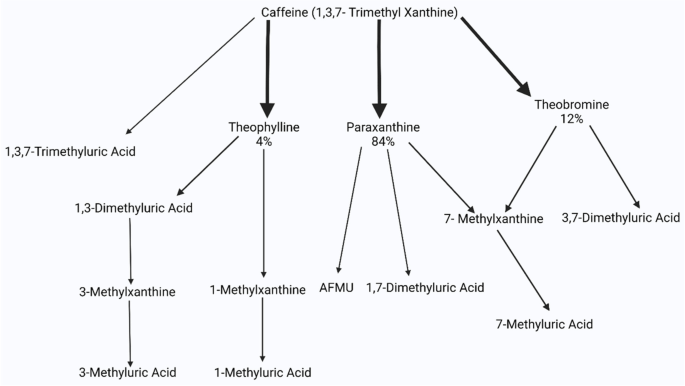Have you ever wondered how your morning coffee might be affecting your testosterone levels? This question has intrigued scientists, health enthusiasts, and coffee lovers alike for quite some time. The sleek allure of that aromatic cup of coffee is undeniable, but understanding its impact on vital aspects of your health, such as testosterone levels, remains crucial.
The Impact of Coffee on Testosterone Levels

What is Testosterone?
Testosterone is a hormone that plays a key role in the development and maintenance of male characteristics, but it’s not exclusive to men. Women also produce testosterone, albeit in smaller amounts. This hormone is pivotal for muscle mass, bone density, and overall strength.
Testosterone isn’t just about physical attributes; it influences your mood, libido, and even energy levels. Maintaining optimal testosterone levels can contribute to an overall healthier and more active lifestyle.
Understanding Coffee and Its Components
Coffee contains a complex blend of compounds that can affect your body in various ways. Primarily composed of caffeine, antioxidants, and diterpenes, coffee has been linked to numerous health benefits, including improved mental alertness and a lower risk of certain diseases.
Here’s a breakdown of coffee’s primary components:
| Component | Potential Effects |
|---|---|
| Caffeine | Stimulates the nervous system, increases alertness |
| Antioxidants | Fights oxidative stress, may reduce inflammation |
| Diterpenes | May lead to increased cholesterol levels in unfiltered coffee |
The Caffeine-Testosterone Connection
One of the major components of coffee, caffeine, is known for its stimulating effects on the central nervous system. But how does caffeine impact testosterone?
Caffeine’s Immediate Effects
Caffeine can temporarily boost testosterone levels. Studies have shown that consuming caffeine before a workout can lead to a short-term increase in testosterone levels. This effect is likely due to caffeine’s role in enhancing the release of catecholamines like adrenaline, which in turn can stimulate testosterone production.
However, this spike is usually short-lived and not necessarily indicative of a long-term increase in baseline testosterone levels.
Long-term Consumption
What happens when you’re a long-term coffee drinker? Evidence suggests that chronic caffeine intake does not drastically alter testosterone levels. In fact, your body may build a tolerance to caffeine, reducing its effect on hormone levels over time.
Coffee and Cortisol: A Balancing Act
Cortisol, often called the stress hormone, is another factor to consider when discussing coffee and testosterone. High levels of cortisol can inhibit testosterone production.
The Cortisol-Boosting Effect of Coffee
Drinking coffee can increase cortisol levels, particularly if you consume it in large amounts or you’re sensitive to caffeine. Elevated cortisol levels can pose a problem as they can suppress testosterone production.

Timing Matters
When you consume your coffee can also play a role in its effect on your testosterone levels. Drinking coffee in the morning, when cortisol levels are naturally higher, might have a different impact compared to drinking it later in the day.
Morning vs. Afternoon Coffee
- Morning: Drinking coffee in the morning could potentially exacerbate the natural morning cortisol spike, which might not be ideal for testosterone levels.
- Afternoon: An afternoon coffee might be a better choice if you’re looking to balance your cortisol and testosterone effectively.
Individual Variability
It’s essential to recognize that the impact of coffee on testosterone can vary among individuals. Factors such as genetics, overall diet, lifestyle, and even how your body metabolizes caffeine play crucial roles.
Genetic Factors
Genetics influences how you process caffeine. Some people are fast metabolizers, breaking down caffeine quickly, which means its impact on their cortisol and testosterone levels might be shorter-lived. Conversely, slow metabolizers may experience prolonged effects of caffeine, which might include sustained cortisol elevations.

Coffee Consumption Guidelines
While coffee does have some impact on testosterone levels, moderation is key. Here are some guidelines for coffee consumption to minimize any potential adverse effects on your testosterone levels:
- Limit Intake: Aim for no more than 2-3 cups per day.
- Monitor Timing: Consider drinking coffee in the afternoon rather than the morning.
- Stay Hydrated: Drink plenty of water throughout the day to counteract coffee’s diuretic effects.
- Listen to Your Body: Pay attention to how your body reacts to coffee and adjust accordingly.
Conclusion
So, does coffee increase testosterone? The answer isn’t straightforward. While caffeine can cause a temporary spike in testosterone, long-term effects are more nuanced and highly individual. Factors like cortisol levels, timing, and your genetic makeup all play a part in how coffee impacts you specifically.
Ultimately, enjoying coffee in moderation and being mindful of when and how much you consume can help you reap its benefits without adversely affecting your testosterone levels. Remember, a balanced lifestyle with proper diet, exercise, and stress management is key to maintaining optimal hormone health.

